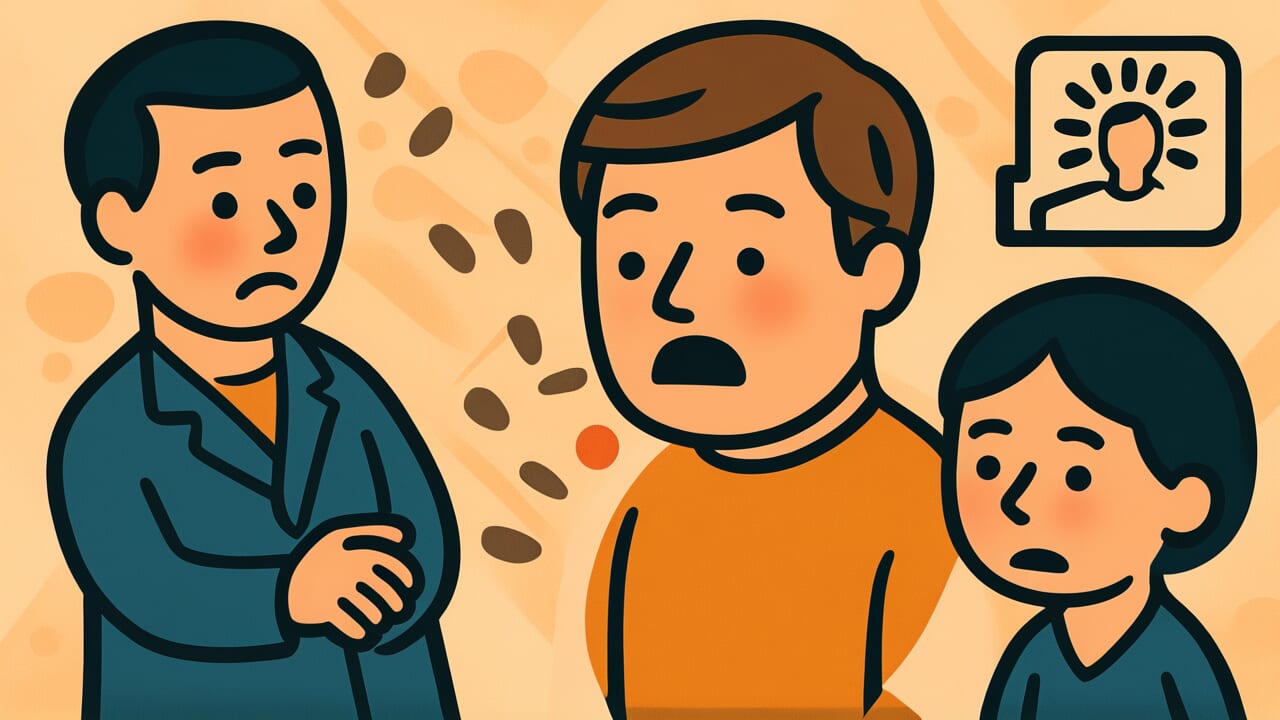How to Read “Resentment in life, lamentation in death”
Ikite no urami shishite no nageki
Meaning of “Resentment in life, lamentation in death”
This proverb means that resentment and regret held during life don’t disappear after death. Instead, they remain as deep sorrow.
It expresses the tragedy of ending one’s life while still holding grudges.
People use this phrase when relationships end without being repaired. It also applies when someone dies leaving behind major regrets.
The words hit especially hard when opportunities for apology or reconciliation are lost forever.
This expression communicates the weight of resentment and how it affects people across time. By describing suffering that continues not just in life but after death, it emphasizes how serious holding grudges can be.
Today, people understand this proverb as teaching the importance of resolving problems while still alive. Don’t postpone fixing relationships.
Origin and Etymology
No definite written records remain about the exact origin of this proverb. However, we can make interesting observations from how the phrase is constructed.
The parallel structure of “resentment in life” and “lamentation in death” is striking. By placing life and death side by side, it emphasizes how deep and lasting resentment can be.
This expression method appears frequently in classical Japanese literature.
The choice of words “urami” (resentment) and “nageki” (lamentation) deserves attention. In classical Japanese, “urami” differed slightly from modern “hatred.”
It carried stronger meanings of lingering regret and frustration. “Nageki” expresses deep sadness.
The proverb describes an emotional transformation. Regret felt during life changes into profound sorrow after death.
This saying likely reflects Buddhist concepts of karma and Japanese spiritual beliefs about grudges persisting after death. The idea that resentment prevents peaceful rest and torments the soul appears frequently in classical performing arts like Noh and Kabuki.
People probably passed down this phrase through folk beliefs across generations.
Usage Examples
- Those two should have talked things through before it became “Resentment in life, lamentation in death”
- The father died while the parent-child conflict remained unresolved, becoming “Resentment in life, lamentation in death”
Universal Wisdom
This proverb has been passed down because it captures a universal truth about human emotions. Resentment doesn’t naturally fade with time.
If left alone, it takes deeper root in the heart. It can dominate an entire life.
What’s fascinating is how “Resentment in life, lamentation in death” describes grudges continuing beyond the boundary between life and death. This isn’t just metaphor—it strikes at the essence of human psychology.
We instinctively fear relationships with important people ending without resolution. Such endings become irreversible regrets, forever carved into the hearts of those left behind.
Our ancestors knew how sad it was to end life while holding resentment. They understood this brought unhappiness not just to those who resent, but also to those resented, and even to people around them.
That’s why they used such strong words to convey the importance of reconciliation and forgiveness while still alive.
Wounds in human relationships don’t heal with time. They can only heal through conscious action.
When AI Hears This
Viewing resentment and lamentation through thermodynamics reveals a process of energy quality degradation. Resentment is active energy, moving violently like high-temperature steam.
It influences surroundings as power to change the other person, plan revenge, or repair relationships. Lamentation, however, is quiet and passive like cooled water.
It’s a state of resignation where nothing can change anymore, with almost no external impact.
In physics, high-temperature thermal energy can convert to work, but usefulness decreases as temperature drops. Similarly, resentment during life can be used as action energy.
Options exist: demand apology, create distance, rebuild relationships. But crossing the definitive boundary of death, that energy can only exist in the low-quality form of lamentation.
It can’t reach the other person, can’t create change—an irreversible state.
What’s interesting is that this change is inevitable. The second law of thermodynamics states that entropy in an isolated system must increase.
Order becomes disorder, useful energy dissipates. When death completely blocks information transmission between living and dead, emotional energy necessarily transitions from low-entropy to high-entropy states.
Resentment changing to lamentation isn’t an emotional issue but a physical constraint of the system.
Lessons for Today
“Resentment in life, lamentation in death” teaches modern people the importance of not postponing relationship problems. In busy modern society, we tend to delay repairing important relationships, thinking “I’ll do it someday.”
But that “someday” may never come.
Remember especially this fact: time doesn’t resolve resentment or regret. Rather, as time passes, the hurdles to apology and reconciliation grow higher.
That’s why if something weighs on your heart, taking action today, this moment, matters.
This proverb also teaches the value of forgiveness for your own peace of mind. Letting go of resentment isn’t just for the other person.
Above all, it frees yourself from suffering.
Is there someone you should contact right now? Someone you want to apologize to, someone you want to thank, a relationship where you want to clear the air?
You don’t need to wait for perfect timing. Even if clumsy, taking one step you can take today is the only way to prevent future regret.



Comments